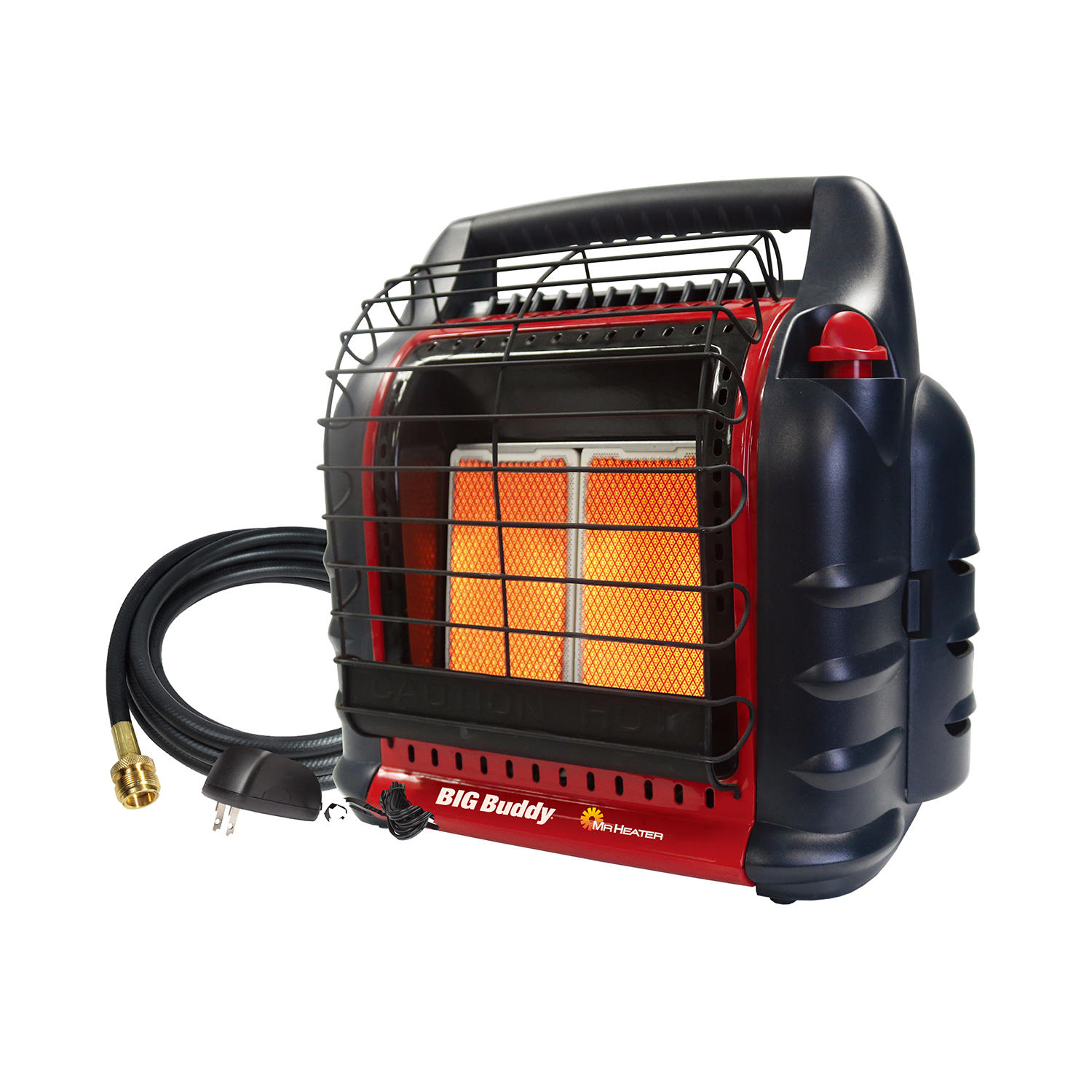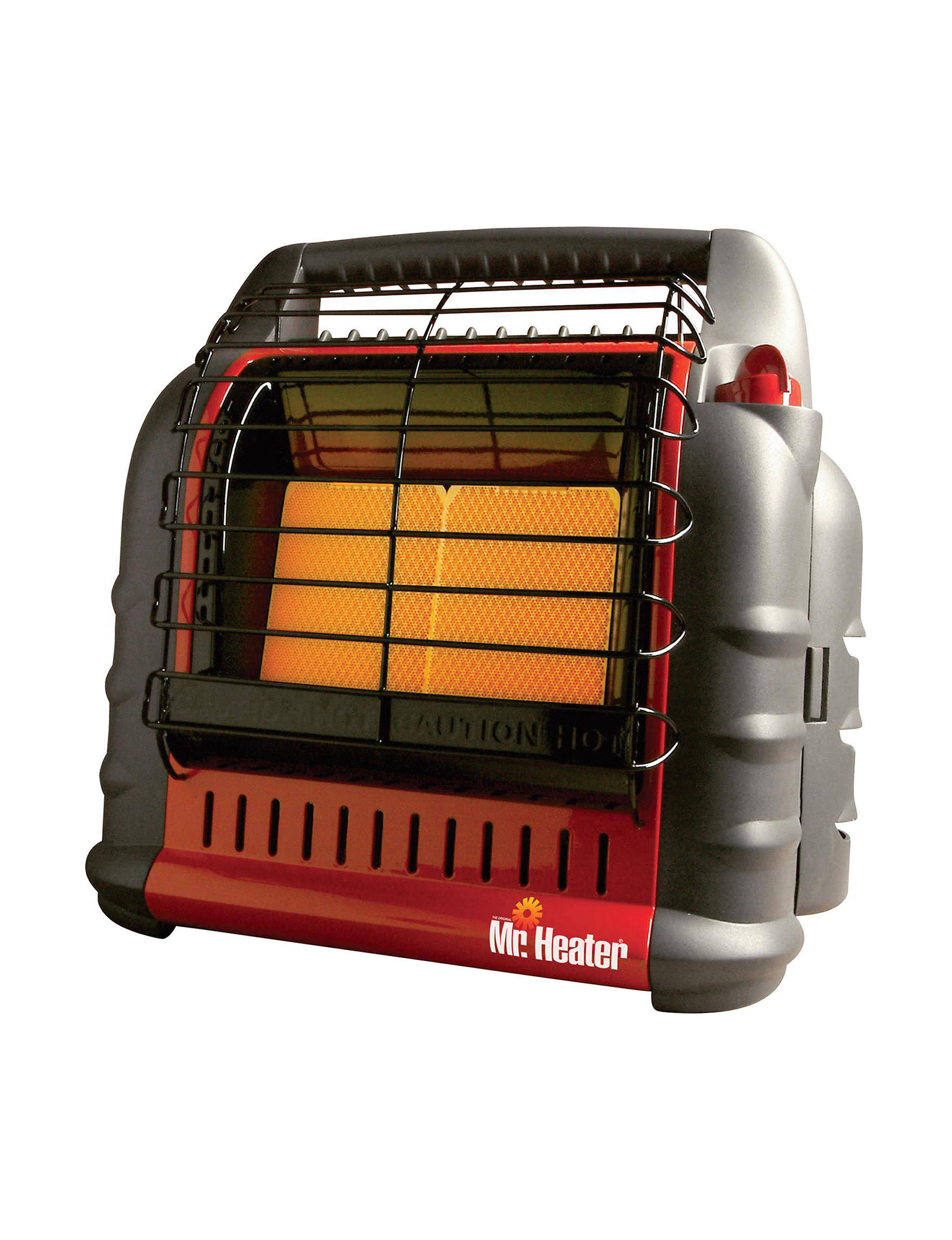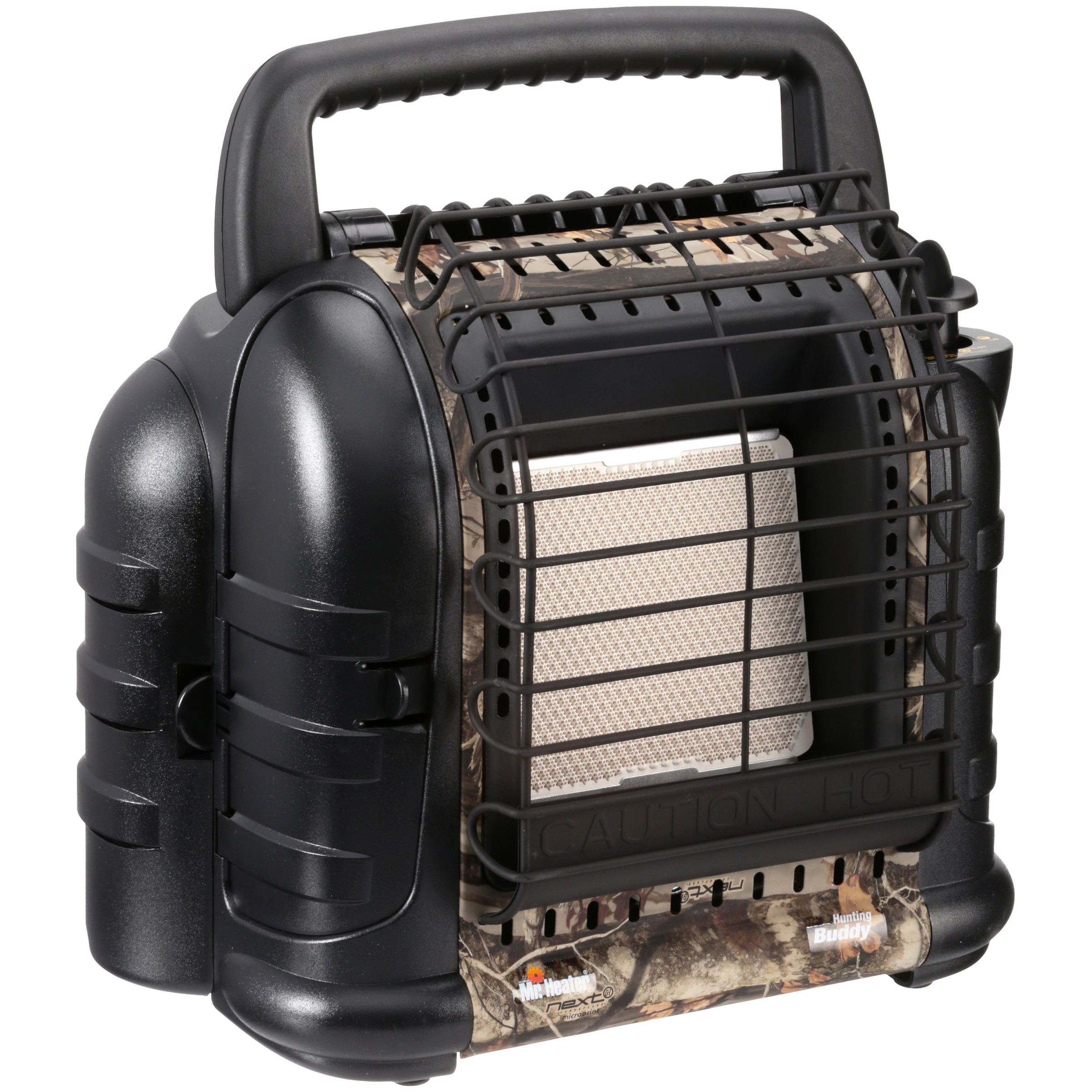Staying Warm- Your Buddy Heater Companion
When the chill truly sets in, especially if you find yourself out in the open or perhaps in a cozy, enclosed space like a fishing shelter, staying comfortably warm becomes a pretty big deal. Folks often look for simple, portable ways to keep the cold away, something that can make a real difference in how long you want to stay out there enjoying yourself. It's about making those colder moments much more pleasant, allowing you to focus on whatever you are doing, rather than shivering. You want something dependable, something that just works when you need it most, and that's often where a good, small heater comes into the picture, like the ones many people call "buddy heaters."
These little heaters, you know, have really become a popular choice for all sorts of situations where you need a bit of warmth on the go. Whether it's for a quick trip to the garage, an afternoon in the ice shanty, or maybe just sitting on the porch when there's a nip in the air, they seem to pop up everywhere. People often talk about them, share tips, and sometimes even ask questions about how they work best or what to watch out for. It's a bit like having a trusty friend along for the ride, ready to offer a bit of comfort when the temperatures drop. So, in some respects, it's pretty clear why they've earned their affectionate name.
There's quite a bit to consider when you're thinking about using one of these handy heaters, from setting them up correctly to making sure they run smoothly and safely. We'll go over some of the common questions and observations people have shared, covering everything from getting your fuel line ready to understanding what to do if the heater acts a little funny. We'll even touch on the interesting way the word "buddy" itself gets used in everyday talk, because, well, that was also part of what folks were discussing. It's all about making sure you get the most out of your warming companion, you know, and stay cozy.
- Walden Farms
- Club Wyndham Royal Garden At Waikiki
- Mercedes Stevens Creek
- Swiftwater Hotel
- Oscar Wilde Bar
Table of Contents
- Getting Started with Your Buddy Heater- What to Know First
- How Do Buddy Heaters Compare to Other Options?
- The Buddy Heater and Fuel- Important Considerations
- Are Buddy Heaters Safe for Indoor Use?
- Customizing Your Buddy Heater Experience
- What's in a Name- The Word "Buddy" and Your Heater
Getting Started with Your Buddy Heater- What to Know First
When you first get your hands on a buddy heater, or perhaps any similar kind of portable propane appliance, there are a few things that folks often mention about getting it ready. One really common piece of advice, especially if you're using a hose to connect to a larger tank, is that you need to clear out your hose. This process, often called purging, is something you do before you hook it up to the heater itself. You simply, very carefully, push in the valve on the female end of the hose. This helps make sure everything flows smoothly once you turn the heater on, and it's a step that many experienced users will tell you not to skip, you know, for proper operation.
Sometimes, even with plenty of fuel, a heater might not stay lit. For example, some folks have mentioned that when they're out in their hub, their big buddy heater will come on for a bit, then just go out, even though there's still a good amount of propane left in the tanks. This can be a bit frustrating, as a matter of fact, especially when you're relying on it for consistent warmth. It's a situation that makes you wonder what might be going on, particularly if you've done all the usual checks. So, if you find your heater acting like that, it's something to pay attention to, as it might signal a small issue that needs a look.
How Do Buddy Heaters Compare to Other Options?
For a long time, many people relied on different kinds of portable heaters. For instance, some individuals have used a tanktop sunflower heater for years. While those had their own set of things that weren't ideal, they usually just worked. This year, though, quite a few people have decided to try out a big buddy heater, perhaps looking for something a little different or maybe just curious about what makes these so popular. It's interesting to see how folks shift from one type of warming device to another, often based on what they've heard or what seems to fit their needs better. You know, it's all about finding what works best for your particular situation.
It seems like there's finally some new choices popping up for folks looking at portable heaters. For quite a while, one particular brand, Mr. Heater, has been a pretty dominant name in the business. But now, it looks like there's some new competition coming in. Some people have even started asking if anyone has seen or used one of the Heat Hog heaters. This kind of new development is always interesting for consumers, as it often means more options and perhaps even better features down the road. So, it's pretty neat to see the choices expanding for those who need a portable warming solution, like a buddy heater, for their outdoor or temporary indoor spaces.
The Buddy Heater and Fuel- Important Considerations
When you're setting up your buddy heater, especially with an external propane tank, the length of your hose can actually make a difference regarding other accessories. For instance, if you get the 10-foot hose, you might not even need a separate filter. This is a common question, and it's good to know that sometimes, a longer hose can simplify your setup a bit. It’s a small detail, but it can save you from buying an extra part and make things a little less complicated, which is nice. So, that's one less thing to worry about when you're getting ready to use your heater, you know.
In most situations where you're using a propane appliance, there's typically a device called a regulator located right at the tank. This regulator is really important because it controls the flow and pressure of the gas, making sure it gets to your heater safely and at the right rate. Following that, there's usually a supply line, which is just the hose that carries the propane from the tank to the appliance itself. Understanding this basic setup is pretty helpful, as it gives you a better idea of how the fuel gets to your buddy heater and why certain components are there. It's all part of the system that keeps things running smoothly and safely, as a matter of fact.
There's a strong feeling among many people that bypassing safety devices is not a good idea, and for good reason. One person mentioned that they're never a big fan of doing that, but they felt like their heater just wouldn't work almost all the time unless they gave it a little kick. This really highlights a dilemma: wanting something to work versus making sure it's operating as it was designed, with all its safety features intact. It's a tricky spot to be in, and it certainly brings up questions about why a device might need such a workaround to function. You know, safety is always a big concern with anything that uses fuel, so this kind of issue really makes you think.
Some folks have even joked that if you mess with certain things, the "heater police" will be knocking on your door for sure. While that's a bit of a funny way to put it, it really points to the importance of following safety guidelines and local regulations. For example, in places like Massachusetts and Canada, these heaters are certified for outdoor use only. This kind of specific rule is there for a reason, often related to ventilation and preventing issues like carbon monoxide buildup. So, it's always a good idea to check what the rules are where you are, you know, to make sure you're using your buddy heater in a way that keeps everyone safe and sound.
Are Buddy Heaters Safe for Indoor Use?
A very important point to remember about buddy heaters is that they are rated for indoor use, but only when they are working correctly. This means that if something isn't quite right with your heater, it might not be safe to use inside. For example, if you're getting a headache from using either of your heaters, that's a pretty clear sign that something is off. Continuing to use them for three straight days with a headache would definitely be a cause for concern. These heaters, you know, produce carbon monoxide, and while they are designed to do so safely when operating properly, a headache is often an early warning sign of a problem. So, it's really important to pay attention to how you feel when using one indoors.
Customizing Your Buddy Heater Experience
Some people like to get a bit creative with how they use their buddy heaters, especially when they have specific setups. For example, someone wanted to design a rack to work with the little buddy heaters. They found that their Otter, which is likely a type of ice fishing shelter, got too hot with the normal buddy heater. So, they switched to the little buddy heater to save a bit of weight and space, and now they're thinking about how to best integrate it. This kind of thoughtful adjustment shows how people really tailor their gear to fit their needs, making sure they're comfortable without overheating their space. It's pretty clever, actually, how folks come up with these solutions.
A common question that comes up among users is whether they need a fuel filter on their buddy heater. Some people have used a few different kinds of buddy heaters over the years and have never seen or thought they needed a fuel filter on them. It seems like it's not a universally accepted necessity, or perhaps some models just don't require it. This really highlights how there can be different experiences and opinions on how to best maintain these devices. So, if you're wondering about a fuel filter for your buddy heater, it seems you're not alone in that thought, and it's a topic that comes up quite a bit among users, you know.
What's in a Name- The Word "Buddy" and Your Heater
The word "buddy" itself, which gives the buddy heater its name, is pretty interesting. It's often seen as one of the most neutral and friendly terms you can use when talking to someone you know, or even someone you don't know that well. Other words, like "bro," "dude," or "fella," can sometimes feel a bit out of place in certain settings, like a more formal gathering, and might make people feel a little uncomfortable. But "buddy" usually doesn't cause that kind of reaction. It generally feels approachable and friendly, which, you know, might be part of why it was chosen for a heater that aims to be a helpful companion.
People often wonder about the polite way to address others, especially in different cultures. For example, someone asked if calling an American "buddy" would be considered offensive. And if it were, they also wanted to know if it would be offensive specifically to an American. It's a good question because the meaning and tone of words can really change depending on who's saying them and who's hearing them. Generally, "buddy" is not offensive, but like any word, context matters. It’s all about how it’s used, really, and the feeling behind it.
The usage of "buddy" can also depend on who is speaking to whom. For instance, two men might use the word "buddy" with each other quite commonly, but then the question comes up: can a man call a woman "buddy"? If not, what would be the equivalent term for women? This shows how language can have subtle social rules attached to it, where some terms feel more natural in certain interactions than others. It's a judgment call, really, and not always an easy one, as a matter of fact, to know when to use it or what a good alternative might be.
There's also that expression, "I'm not your friend, buddy," which has a pretty strong colloquial meaning. Someone mentioned they had seen it used twice and guessed it had more than just a literal meaning. And they are right; it typically means something more like, "Don't get too familiar with me," or "I'm not here for friendly conversation." It’s a way of setting a boundary, you know, and it's a good example of how words can take on special meanings beyond their simple definitions when put into certain phrases. It just goes to show how rich and varied everyday language can be.
Another interesting phrase that came up was "bum buddy," with some thinking it might be the original version of a similar term. It's also thought to be primarily a British usage, even though the word "buddy" itself is essentially American. This points to how words and phrases can travel across different regions and take on slightly different forms or meanings. The idea of "butt buddies" as a superficially more consistent version was also mentioned. These kinds of linguistic observations are pretty fascinating, actually, showing how language evolves and adapts in different places.
Using the word "buddy" can also be a really warm way to address someone you care about, especially a child. For example, it's considered a good option to call your son "buddy" because, hopefully, it literally describes a way you see him – as a companion or friend. In that sense, it doesn't replace his name in the same way that a general term like "champ" might when used broadly. It suggests a specific kind of relationship, one of closeness and shared experience. So, it's a term that carries a lot of affection and meaning for many people, you know, when used in that context.
The question of when "stranger," "friend," "buddy," or "mister" becomes a replacement for a person's proper name is quite thought-provoking. It really is a judgment call, and as one person put it, not necessarily an easy one. It depends on the situation, the level of familiarity, and even the tone of voice. There are no hard and fast rules, which makes these social interactions a little bit like a dance. You have to feel out the moment and decide what feels appropriate. It's all part of the subtle ways we communicate and connect with each other, as a matter of fact.
Interestingly, the word "buddy" also appears in other contexts, like in the title of a game called "Camp Buddy." Some players have sought guidance on how to play it, especially regarding intimate moments within the game, mentioning that they used to just press buttons randomly, which sometimes prevented certain story parts from happening. One player shared how incredibly moved they were by the game, even crying after finishing a particular storyline. This just goes to show how deeply stories and characters, even in a digital setting, can affect people, and how the word "buddy" can be part of something that creates a very strong emotional connection. So, it’s not just about heaters, apparently, but also about these kinds of experiences.
Finally, the word "buddy" also brings to mind historical events for some. For example, some people thought the term was more specifically about the plane crash that tragically took the lives of Buddy Holly, Richie Valens, and the Big Bopper. This connection shows how words can become linked to significant cultural moments or figures, carrying an extra layer of meaning for those who remember or learn about these events. It's a reminder that language is often tied to our collective memories and shared history, giving certain words a resonance beyond their everyday use, you know.
This discussion has covered quite a range of topics, from the practical steps of getting a buddy heater ready, like purging a hose, to troubleshooting issues like a heater going out with plenty of fuel. We looked at how these heaters compare to other options, such as tanktop sunflower heaters, and even touched on new competitors like Heat Hog. We also explored important considerations for fuel, including hose length and filters, the role of regulators, and the strong emphasis on safety, noting specific certifications for outdoor use in certain regions. The conversation also included how people customize their heating setups, like designing racks for smaller heaters to manage warmth in tight spaces. Finally, we explored the fascinating nuances of the word "buddy" itself, its usage in various social contexts, common expressions, and even its appearance in games and historical references, showing how a simple word can carry many layers of meaning.
- Omni William Penn
- Autograph Brasserie
- Richmond Animal League
- Camp Aramoni
- The Strand House Manhattan Beach

Portable Radiant Big Buddy Heater with Hose and Adapter $149.98

Mr. Heater Big Buddy Heater - Lorphan

Buddy heater - dialnipod